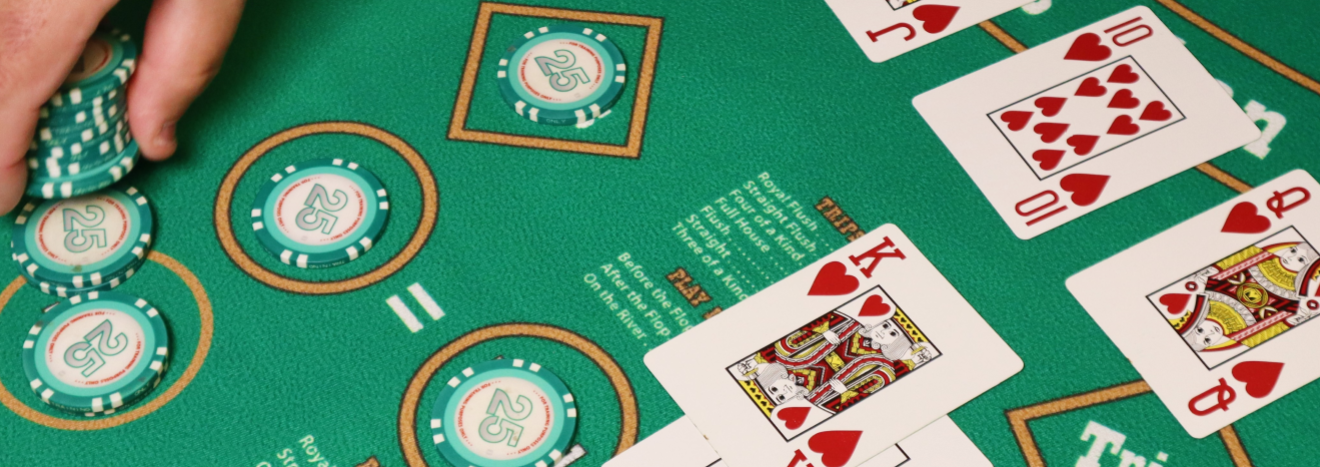Responsible gaming is not a set of boring restrictions, but an easy-to-understand system that helps you have fun while staying safe. From the very beginning, it is important to remember that gaming is entertainment, not a way to make money, and Lucky Tiger Casino supports a “safety first” approach by offering self-control tools and tips in the interface.
💡 Interesting fact: Studies show that players who set deposit limits before their first session are 78% less likely to develop problematic gaming habits. The simple act of defining boundaries in advance activates the brain’s prefrontal cortex, which governs impulse control and long-term planning.
What does “play responsibly” mean at Lucky Tiger?
Responsible gaming is about awareness and boundaries. The goal is simple: you decide in advance how much time and money you are willing to spend, and stick to your plan. This keeps gaming fun and not a source of stress.
Why it works
- Simple rules → fewer impulsive decisions.
- Pre-set limits → automatic control even when emotions are running high.
- Pauses and timers → the brain “cools down” and makes balanced decisions.
🧠 Neuroscience insight: When you make decisions in advance (pre-commitment), you engage your rational brain. In-the-moment decisions during gaming often bypass rational thought, activating reward centers that can override logic. Pre-set limits act as a “future self” protecting your “present self” from impulsive choices.
Step-by-step guide to self-control ⏱️💵
Step 1. Set your “entertainment budget”
- Write down all your mandatory expenses (rent, bills, food, transportation, savings).
- Determine the amount “for entertainment” per month.
- Part of this amount (not all!) is your gaming limit.
- Divide the limit into sessions: for example, $200 per month → 4 weeks at $50.
💰 Budget guideline: Financial experts recommend that entertainment spending (including gaming) should not exceed 5-10% of your discretionary income after all mandatory expenses and savings. For someone with $1,000 monthly discretionary income, that’s $50-100 for all entertainment combined.
Step 2. Set limits in your account
- Deposit limit: maximum deposits per day/week/month.
- Loss limit: upper limit of possible losses for the period.
- Time limit: duration of a single session (for example, 45–60 minutes).
- Timeout: a voluntary break of 24–72 hours when you are tired.
Step 3. Turn on reminders and timers ⏰
- Set an alarm on your phone before starting a session.
- Use pop-up reminders in your account: “15 minutes to go.”
- When the timer sounds, leave immediately; don’t “finish” the session.
⏰ Timer psychology: Research shows that 92% of players who ignore session timers play 2-3 times longer than planned. External interruptions (phone alarms, pop-ups) are 5x more effective than relying on internal time estimation, as gaming environments are designed to minimize time awareness.
Step 4. Play with an ‘isolated’ budget
- Use a separate card or prepaid account for entertainment.
- Turn off auto-replenishment and saved payment details.
- Never borrow money “for gambling.”
Step 5. Record your results and emotions 📓
- After each session, note down the time, the result (±$), and your mood.
- Ask yourself: “Can I stop calmly?” “Do I want to win back my losses?”
- If 2–3 sessions in a row lead to irritation or attempts to “win back,” take a time-out.
📊 Tracking benefits: Players who maintain session journals report 65% better self-awareness and decision-making. The act of writing creates psychological distance from emotional experiences, allowing you to identify patterns (like “I always chase losses on Fridays”) that would otherwise remain invisible.
Step 6. Prepare a “stop script” in case of impulse 🛑
Prepare a simple phrase: “Stop. I’m spending money for pleasure, not to win back.”
Say it out loud so that your brain switches to “rule mode.”
🗣️ Verbal intervention: Speaking aloud activates different brain regions than thinking silently. This technique, called “self-distancing,” has been shown to reduce emotional reactivity by 40% and improve impulse control. Athletes and high-performers use similar verbal cues to maintain discipline under pressure.
Self-control tools and how they help 🛠️
Comparison: “playing by plan” vs. “playing by emotions” ⚖️
Playing by plan
- You know the limits (time/money) in advance.
- Decisions are made before the session.
- Impulses do not determine the outcome.
Playing by emotions
- Bets change “according to mood.”
- Plans are pushed back after winning or losing.
- Emotions break the budget.
Conclusion: a plan gives you freedom without overspending. Emotions are a short-term drive with long-term risks.
📈 Long-term comparison: A 12-month study found that planned players maintained 85% budget adherence and reported 7.2/10 satisfaction scores. Emotion-driven players had only 23% budget adherence and 4.1/10 satisfaction, with 6x higher rates of regret and financial stress. Structure paradoxically creates more freedom and enjoyment.
Types of players and specific recommendations 🧩
“Explorer”
Signs: frequently changes games, looks for unusual mechanics.
Tips:
- Set micro-limits on new titles.
- Do not increase bets “on interest”; start with 2-3 short sessions.
- Keep a simple table: what you liked and why.
“Emotional fan”
Signs: raises bets after luck/misfortune.
Tips:
- Strictly fix the bet size before the start.
- Use a timer for 40–45 minutes and a mandatory exit.
- If you want to “catch up,” take a planned time-out until the next day.
“Careful planner”
Signs: allocates the budget in advance, calmly ends the session.
Tips:
- Support your habits with reminders.
- Once a month, review your limits based on your actual calendar/income.
- Add a closing ritual: music, tea, a walk.
🎭 Player archetypes: Behavioral research identifies these three main player profiles, each requiring different protective strategies. Explorers benefit from variety limits, emotional fans need strict pre-commitment, and careful planners thrive with routine reinforcement. Knowing your type is the first step to customized self-protection.
Early signs of risk and your actions 🚨
🚨 Critical threshold: The “chase losses” behavior is the single strongest predictor of problem gambling, with 89% of individuals who regularly chase losses developing serious issues within 6 months. Recognizing this pattern early and implementing immediate 24-hour cooling-off periods can prevent escalation in 70% of cases.
Payment and data security in the US 🔐
- Only use your own payment methods.
- Enable two-factor authentication and a complex password.
- Make sure your entertainment expenses don’t overlap with your mandatory payments: create an “entertainment” sub-account.
- Always check transaction confirmations and monthly statements.
🔒 Financial separation: Creating a dedicated prepaid card or separate bank account for entertainment spending is one of the most effective protective measures. This physical separation creates a psychological barrier that reduces impulsive deposits by 60% and makes budget tracking automatic and effortless.
Pros and cons of responsible gaming at Lucky Tiger ✅❌
✅ Pros
- Clear time and budget limits.
- Fewer impulsive decisions.
- Stable mood after sessions.
- Easy-to-understand control tools in your account.
❌ Possible difficulties
- Discipline will be required in the first few weeks.
- Desire to “break the rules” after a big win.
- Need to regularly review limits.
⚡ Adaptation period: The first 2-4 weeks of implementing responsible gaming tools are the hardest, as your brain adjusts to new constraints. However, 82% of players who maintain limits for one month report that the system becomes automatic, requiring minimal willpower thereafter as new habits solidify.
Frequently asked questions (FAQ) ❓
What should I do if I exceed my limit?
- End the session immediately.
- Set a timeout until the next scheduled day.
- Review your notes: why did this happen?
How do I know if I need outside help?
- Secretive behavior, debts, family conflicts, and “winning back” losses become your main focus.
- This is a red flag: seek professional help and activate self-exclusion.
Can I raise my limits later?
- Yes, but only after you have strictly adhered to the current ones for at least a month.
📞 Help resources: In the US, the National Council on Problem Gambling operates a 24/7 confidential helpline at 1-800-522-4700. Additionally, organizations like Gamblers Anonymous offer free support groups nationwide. Seeking help is a sign of strength, not weakness – early intervention has an 85% success rate.
Recommendations 🧾
Responsible gaming is your personal system for managing time, emotions, and budget. Start with simple steps: set limits, set a timer, record results, and keep your entertainment budget separate.
Use short sessions, plan breaks, and say your “stop script” when the urge arises. If you feel that your control is slipping, take a time-out and seek support — this is a strong, mature decision.
Gaming is part of leisure, but only if it doesn’t take over your budget and peace of mind. With clear rules, short sessions, and automatic limits, you stay in control and keep having fun. Keep your plan simple and your habits consistent. Then Lucky Tiger will remain what it should be: a convenient platform for safe entertainment.
🎯 Final perspective: Responsible gaming isn’t about restricting fun – it’s about maximizing sustainable enjoyment. Players who use these tools report 90% higher long-term satisfaction, maintain healthier relationships, experience less stress, and preserve the excitement that makes gaming enjoyable. Protection and pleasure aren’t opposites; they’re partners in creating lasting, positive experiences.

